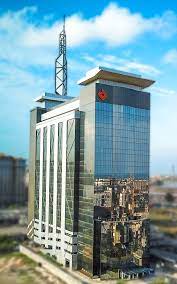
Access Holdings, the parent company of Access Bank, has achieved a remarkable feat in becoming Nigeria’s largest bank by assets. However, despite its impressive growth and size, the company has lost the battle where it matters most: resourcefulness. In the business world, resourcefulness , a company’s ability to generate returns on investment, create value for shareholders, and demonstrate its worth in the market , is a critical successfactor keenly looked for by investors. It’s not just about size or growth; it’s about how efficiently a company uses its resources to drive profitability and increase its market value.
Access Bank’s financials, in the last few years, have always been a story of inefficient resource utilization. At the end of the 2024 financial year, the bank’s total assets were N41.878 trillion, gross earnings were N4.878 trillion, and profit after tax was N642.2 billion. This translates to a net profit margin of 13%, indicating that Access Bank only retained N13 as profit from every N100 made as revenue. In other words, the bank used N87 as costs to generate N100 in revenue. This raises questions about the bank’s ability to deploy its resources effectively and achieve competitive advantage.
Moreover, despite being the largest bank in Nigeria by assets, Access Holdings’ market value is surprisingly low compared to its peers. The company’s market valuation is less than its main competitors, Zenith Bank and GTCO. This disparity in market value suggests that investors are not valuing Access Holdings as highly as its rivals, despite its impressive growth and profitability.
Several factors may contribute to Access Holdings’ low valuation. One possible reason is the company’s high debt levels, which have funded its rapid expansion. While this growth strategy may have benefits, it also comes at a cost to shareholders, who may not be seeing sufficient returns on their investment. Another factor may be the company’s relatively low dividend payouts, which could be deterring investors.
In a recent statement, Aigboje Aig-Imoukhuede, chairman of Access Holdings, hinted at a shift in strategy. The company plans to slow down its expansion drive and focus on consolidating its recent acquisitions. This move suggests that the company is aware of the need to prioritize resourcefulness and create value for shareholders.
Access Bank’s story serves as a reminder that size and growth are not the only measures of a company’s success. Resourcefulness, profitability, and market value are equally important. As Access Holdings proceeds with its plans to consolidate its acquisitions and increase its market value, investors will be watching closely to see if the company can deliver on its promises. Can Access Bank prove its resourcefulness and increase its market value? Only time will tell.




